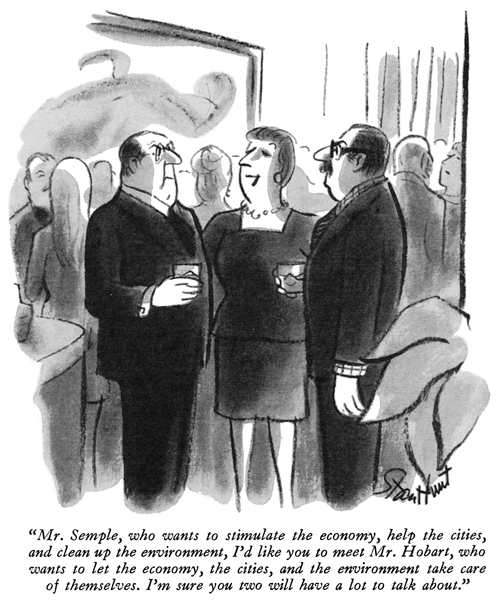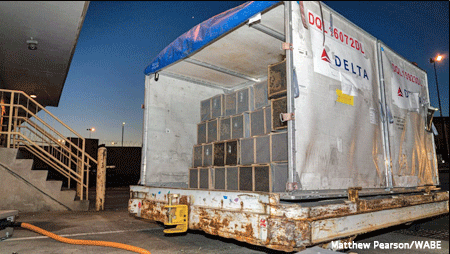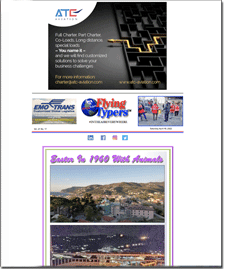
 |
| |
 |
 #INTHEAIREVERYWHERE |
| Vol. 21 No. 20 | Tuesday
May 17,
2022 |
| |
 |
Our favorite yearly treat was delivered to New York City this week. Air cargo is once again delivering cases of the great German “royal vegetable,” spargel (white asparagus), once reserved for the upper classes. The German American Chamber of Commerce celebrates the season with its Annual White Asparagus Dinner that was held at The Tribeca Rooftop in Manhattan. With its unparalleled view of the dazzling Number One World Trade Tower and lower Manhattan, the Tribeca is a grand venue where hundreds will gather (May 18) for an evening of dress-up, good food and music, and networking. Manhattan was be laid out like a magic carpet beneath the buzz of the rooftop party. “It is always a pleasure and an honor to bring these cases of white asparagus to New York,” said Karin Frigger, Chairwoman of EMO Trans, which organizes and provides total logistics for the shipments each year. “While very popular during April until early June in Germany, the vegetable is a rarity in the United States and is not grown here,” Karin Frigger said. “Some attempts have been made to produce the asparagus in Latin America, but the best big white asparagus, with its particular texture and sweetness, is grown in Germany, where for centuries it has heralded Springtime. “Spargel is a moveable feast that air cargo can deliver as no other mode of transport,” Karin Frigger said. “Working closely with our service partners it's strictly hands-on, all the way,” said Ms. Frigger, who noted: “This year the Spargel were transported from the fields in coolers to the airport. “But the payoff is well worth it as a grand tradition is maintained and enhanced by EMO Trans’ ability to handle all manner of shipments end to end.” Geoffrey |
On my way to collect Francesco Parisi from Turin’s train station on Friday 29th of April, I received an email from Geoffrey, which demanded: “Would so appreciate a story with Francesco. He is a beautiful human being . . . When he is in our issue he makes us all look good. Perhaps you can have him talk and predict ocean or something connected to gateway Trieste?” Francesco was in fact coming to Turin on the invitation of the local Propeller Club to talk about his experience at the head of his company, Francesco Parisi spa, the most historical forwarding and logistics enterprise in Italy. The title we chose for his speech was: "From 1807 to globalization and beyond" and obviously this was going to include a fair bit about the port of Trieste and its importance in European logistics. Clearly this coincidence made my task easy. Having organized a follow-up with a visit to the unique Egyptian Museum of Turin, I was also going to spend Saturday with Francesco and his wife Marina. In town was also another person our readers already know: Nicolette van der Jagt, the DG of CLECAT in Brussels, who joined us for dinner. Nicolette had planned to visit the surrounding countryside hills in Moncalvo, Turin’s museums, restaurants and all the rest. In her own words: “And yes, Turin was so enjoyable . . . Still more to discover, so will be back no doubt.”
In other words, starting on April 29th until May 1st I found myself inside a serendipity cloud in my hometown and effortlessly gathered the material required by Geoffrey. Here are the main points that Francesco touched upon in his applauded speech at the local Propeller Club. Francesco Parisi, assisted by his sons Tomaso and Matteo, manages the most historic forwarding company in Italy, now in its eighth generation as a family business. On 1 January 1807 the founder, also called Francesco Parisi, opened the company in search of new outlets, coming from Rovereto, IT, in which the silk-spinning family business was suffering. Within the continental Austro-Hungarian Empire Trieste was rapidly developing as its new great harbour, attracting initiatives and businesses from the Slavic, German and Italian provinces, without forgetting the Greeks, Egyptians and Turks, all flocking to the new hub. Trieste is closer to the Ukrainian border than it is to Naples and sits at the same distance from Turin as Munich, Vienna and Budapest. This explains the prevailing interest of Trieste for central European traffic. In the 30s of the nineteenth century large enterprises such as Assicurazioni Generali, Lloyd Austriaco (later Triestino) and Fratelli Cosulich were established, and Parisi flourished along with the growth of the city and its trade. In 1857 the southern railway opened connections to Vienna and Parisi opened its first branch in Vienna, the capital of the empire. Other dates are less certain (http://www.trasporti-fvg.it/english/ferr1.htm) for the connection to Venice, where Parisi opened shop in 1872, then Prague in 1877, in 1879 Munich, then Milan in 1898, all new branches for the growing company. Against any public persuasion, World War I suddenly broke out causing the Austro-Hungarian empire to collapse, along with the Russian and Ottoman. The world around Trieste changed suddenly and fundamentally. In 1919 a family member was writing “everything becomes difficult in this fragmentation of the hinterland of the Adriatic ports.” Yet the company, led at that point by Francesco’s grandfather from Venice, recovered and expanded again, even opening branches in Athens and Constantinople. Unfortunately, with the changes later occurring with World War II, Parisi lost half of its organization, i.e. the part quartered beyond the iron curtain. Francesco entered the family business for good in 1976, upon his arrival in Trieste, and was worried about the progressive marginalization of the port and the city: there was a lot of uncertainty about keeping the headquarters in Trieste, a choice that in time proved to be right. Parisi is today a dynamic company, open to large distant markets, such as those of Asia and the Americas and keeps pace with the changes of our troubled modern times through prudent, conspicuous investments in Italy and abroad (today it operates in 14 countries, employing 950 FTE’s). In his comprehensive lecture Francesco also explained the historical and geopolitical framework of the relaunch of Trieste, which was so instrumental in his family’s fortunes. On November 9th 1989 the Berlin Wall fell, on May 1st 2004 four countries that were part of the historic hinterland of the port of Trieste (Slovenia, Hungary, Slovakia and the Czech Republic) entered the EU and from 2007 progressively the Schengen area, followed by Croatia in 2013: within 25 years the unity and open economic space of the empire in which Francesco Parisi SpA had been working, was restored. In addition, after a long race, China became the first trading power of the world in 2015, reaching a 13.8% global export share, the highest ever reached by a single nation after the USA in 1968. In macroeconomic terms, after the fall of the Berlin Wall, the countries of Central and Eastern Europe recorded GDP growth rates 30 to 50% higher than those in Western Europe. Almost all investments in new automotive production, a fundamental engine for transport flows, took place in Eastern Europe, in Poland, Czech Republic, Slovakia, Hungary, Romania, Turkey, etc. Consequently, the North-Adriatic and Trieste at its cusp once again glowed as an ideal location for the distribution of goods as they did in the Austro-Hungarian Empire. The Trieste Logistics Platform Project was another point of interest touched by Parisi to explain the novel importance of Trieste for the whole of Eastern Europe. In 2011 the company was invited to participate in the design, construction, maintenance and management of the Logistics Platform within the port of Trieste. Twelve hectares east of the old city were allocated to this development with a public-private project. The eyes of world logistics focused again on Trieste, as the Platform was the only new infrastructure under construction in 2016. As we know, nobody works in isolation in logistics . . . The first to take an interest in the project were important Chinese operators from Hong Kong. In agreement with the Port Authority of Trieste, a series of meetings followed but did not end up in a deal. After the exclusive rights of the Chinese had expired, in the summer of 2019 a new negotiation started with HHLA in Hamburg. In spite of the difficulty imposed by the pandemic, the need for huge financial resources, and even more the need to operate within a European network, champion in container traffic, made the deal that had not been possible before, with an agreement intervening to integrate Trieste into a geographical network connecting the Baltic, the Mediterranean and the Black Sea under the aegis of the HHLA. In conclusion Francesco confirmed that his company’s revenues in 2021 followed the evolution of air and sea freight rates, which are the raw material of the forwarder, and literally exploded. “After having overcome two world wars with great impact on our core markets, we were not afraid of the radical structural changes we have experienced in the past two decades, but two months after the invasion of Ukraine and without yet having completely stopped the pandemic,” Francesco admitted, “I would hesitate to doubtlessly repeat this statement now,” concluded Francesco Parisi, greeted by a warm applause. Marco Sorgetti |
 |
The Proud Bird may no longer have a Golden Tail as it once had back in the glory days of Continental Airlines but for the air cargo community of Los Angeles May 12 was a once a year day as the Los Angeles Air Cargo Club hosted Air Cargo Day. A big crowd of locals and drop ins from everywhere enjoyed the gathering that offered all ample opportunity to network and compare notes as another in what will be remembered as standout gatherings in 2022 post pandemic. The event also served for LAX Airport to announce is aggressive and long anticipated cargo redevelopment program. The Los Angeles Air Cargo Association welcomes airlines, freight forwarders, customs brokers, trucking firms, cargo handling services and other air cargo related industries. Members have opportunities to participate in monthly meetings offering speakers that will promote discussions and educational programs relating to the transportation industry and related fields. The quarterly luncheons feature top speakers including this past March, Mike White former President of CNS. Next Luncheon in June can be accessed here. |
 Can’t
come fast enough for a shipment of about 800 pounds of bees, or more than
5 million individual bees, that were being shipped by Delta Cargo to Alaska
from Sacramento, California in early May that were left to die on the tarmac
at Hartsfield-Jackson Atlanta International Airport according to EcoWatch. Can’t
come fast enough for a shipment of about 800 pounds of bees, or more than
5 million individual bees, that were being shipped by Delta Cargo to Alaska
from Sacramento, California in early May that were left to die on the tarmac
at Hartsfield-Jackson Atlanta International Airport according to EcoWatch.Delta reportedly had placed the crates of bees at a storage area on the tarmac, but the temperatures were too high. “I really panicked when they found they had moved them outside,” the shipper, beekeeper Sarah McElrea of Sarah's Alaska Honey said. “It’s devastating to see that many dead,” Julia Mahood, a Georgia Master Beekeeper told WABE PBS affiliate Atlanta. “Just clumps of dead bees that had no chance because they were left outside with no food and basically got lost in Delta’s machinery.” A positive note in all of this was reported by WABE 90.1 Radio that lauded more than 20 beekeepers from the Metro Atlanta Beekeepers Association (MABA) that managed to rescue thousands of bees from the conflagration. Delta apologized “for the unfortunate situation” and took “immediate action to implement new measures to ensure events of this nature do not occur in the future.” World Bee Day is celebrated on May 20. On this day Anton Jansa, the pioneer of beekeeping, was born in 1734. The purpose of the international day is to acknowledge the role of bees and other pollinators for the ecosystem, to bring the public's attention on the significance of saving honey bees and any remaining pollinators, and the importance of bees in providing for the needs of humanity. In December 2017, the UN Member States approved Slovenia’s proposal to proclaim May 20 as World Bee Day. |
India's air cargo received a thumping boost when the Harvard and Stanford Graduate School of Business-educated Jyotiraditya Scindia, the country's minister for Civil Aviation charted out a target: achieve 10 million metric tons of cargo by 2030 from the 3.1 mn metric tons at present. At a select gathering of top air cargo stakeholders (the Air Cargo Forum India, an association of various stakeholders of Air Cargo Logistic Supply Chain Trade and Industry), Scindia pointed out that air cargo - once an “underdog” had become a “superdog” during the “tumultuous and painful” Covid times. That was because the industry had been able to adapt and change to the new environment. This new environment, he emphasized, had been created due to the “paradigm shift in the role of the government”. Earlier, the government was a “regulator, controller and a creator of barriers”. Today, it is a facilitator and often a hand-holder that allows air cargo stakeholders to perform to the maximum of their capabilities. Referring to himself as a “backroom boy” who does not believe in sitting at a square table but a round one – “I do not believe in heading a table but want to work as an equal partner” -- the Minister said that the air cargo industry was “ripe for explosion”. Witness the figures: air cargo had been seeing a growth rate of 9-10% since 2013-14. And, in the last two years, airlines have seen a 520% increase in cargo revenue. As of today, the Indian cargo revenue stands at INR 2,000 crore (US$307.12 million) with 3.1 million metric tonnage at a CAGR of 13%. Air cargo’s growth could be seen from the number of Indian freighters: from seven to 28 in a short period of three years. The major share of air cargo came from the four metro airports -- Delhi, Mumbai, Hyderabad and Bengaluru -- and the time had come to focus and connect Tier-2 and -3 cities to the metros. Scindia said there was need to “strategize” and “grow the market”. He would concentrate on his three-point agenda: Create feeder services to connect Tier-2 and -3 cities to metros; Develop India as a transshipment hub; and, bring in ease of business by making the processes completely paperless. He pointed out that “to achieve the target of 10 million metric ton in cargo, industry players need to focus on transportation of smaller cargo loads from Tier-2 and Tier-3 cities to metros with the acquisition of smaller aircrafts”. For that the government was creating 33 new domestic cargo terminals by 2024-2025. Over the next four years, the Ministry of Civil Aviation will be spending close to INR 98,000 crores (US$1,26,85,668.80) to set up new Greenfield airports and expand existing Brownfield airports. Part of this amount, INR 62,000 crores (US$80,26,563.40) will be invested by private sector. The government, through Airports Authority of India, will expand 42 Brownfield airports and set up 3 new Greenfield airports. The private sector will expand 7 existing Brownfield airports and set up 3 new Greenfield airports including Navi Mumbai, Jewar and Mopa. He elaborated on how this has opened opportunities in the country. Infrastructure creation has already started paying off: Jackfruits from the small Northeastern state of Tripura (the eight state in the Northeast has remained neglected basically for want of connectivity) have found a market in UK and Germany while King Chillies and Lemons from Assam, again a Northeastern state, were now being supplied to London. This, said Scindia was, a classic example of A2A i.e. Agriculture to Aviation, a link of “two seemingly unrelated sectors being linked due to air infrastructure being made available to remote areas in the country.” Scindia’s words were well received by the air cargo community. Now that cargo has become a “superdog”, our desire of seeing the country as a top air cargo player does not seem far away, as a veteran freight forwarder put it. A clearer picture of the government’s designs have indeed emerged. We will keep you posted. Tirthankar Ghosh |
 |
The face of the future—lifting super heavy cargo payloads and passengers into space, on a mural in Brownsville, Texas created by PoPC. Once again part of the success of getting off the ground depends on action taken by aviators to get out of the environmental bullseye as the magnificent and huge SpaceX “Starship” works its way through the development process to eventually deposit heavyweight satellites into near earth orbit, and humans on the Moon and Mars. Turns out that SpaceX Starbase at Chica Village, Texas is located in the middle of a National Wildlife Refuge where recently Army Corps Engineers shut down further development of that base until SpaceX put into writing how their planned expansion in South Texas will affect that area. The Starship project has residents of Cameron County, Texas, sharply divided over the rocket facility's growth especially for possible impact upon some rare bird species in the aforementioned wildlife refuge. Interestingly the situation is not dissimilar to action around many airports of the world, including as example, John F. Kennedy International Airport, where the Five Towns area is also home of one of the largest and most varied bird populations on earth. The idea of moving air operations away from city centers and concentrated populations of people to shores and swamp areas ended as populations grew to include similar concern for endangered and rare varieties of animals decades ago. Today commercial aviation has adapted to existing with the birds fairly well. But the Super Heavy Rockets are a challenge that is really something else. So the man that engineered the once thought impossible acquisition of Twitter may have to figure on an equally big pivot to eliminate one impact that will be near impossible for anyone to miss, and that is a gigantic rocket, a titan of the heavens at takeoff. Some reports are mentioning earth-shaking window rattling for miles and ruffling feathers when Starship takes off.. Never mind that this big bertha spaceship will return all parts of itself gently back to Earth, something practically unheard of before. The era of Starship will change everything. So will the ever inventive rocketeers of tomorrow at some point have to move takeoff operations from land to maybe platforms at sea or even out into the middle of the ocean, eventually launching into space from repurposed oil drilling platforms to avoid impacting both people and coastal habitats? You look at SpaceX and its dreamers and doers, recalling something Charles Lindbergh wrote in 1927, after conquering the Atlantic Ocean by flying alone in a tiny single-engine aircraft from New York To Paris 95 years ago on May 21, 1927. “I owned the world at that hour as I rode over it. “Free of the earth, free of the mountains, free of the clouds. “But how inseparably I was bound to them.” |
If
You Missed Any Of The Previous 3 Issues Of FlyingTypers Access complete issue by clicking on issue icon or Access specific articles by clicking on article title |
||
 Vol. 21 No. 17 Easter 1960 With Animals Chuckles for April 16, 2022 |
|
|
Publisher-Geoffrey Arend
• Managing Editor-Flossie Arend • Editor Emeritus-Richard
Malkin Film Editor-Ralph Arend • Special Assignments-Sabiha Arend, Emily Arend |
Send comments and news to geoffrey@aircargonews.com
|